
Spirit was an American rock band founded in 1967 and based in Los Angeles, California. Their most commercially successful single in the United States was "I Got a Line on You". They were also known for their albums, including their self-titled debut album, The Family That Plays Together, Clear, and Twelve Dreams of Dr. Sardonicus.

Randy Craig Wolfe, known as Randy California, was an American guitarist, singer and songwriter, and one of the original members of the rock group Spirit, formed in 1967.
Edward Claude Cassidy was an American jazz and rock drummer who was one of the founders of the rock group Spirit in 1967.

Twelve Dreams of Dr. Sardonicus is the fourth album by the American psychedelic rock group Spirit. It was produced by David Briggs, who is best known for his work with Neil Young. The original LP was released in November 1970 by Epic. The band's lowest charting album to that point, it peaked at #63 on the Billboard 200 in February 1971, spending only fourteen weeks on the chart. However, it sold well as a catalog item and became the band's only album to ultimately attain a RIAA gold certification in the U.S., achieving that status in 1976. On the Canadian RPM Magazine Top 100 charts, the album reached #49 and was in the top 100 for 10 weeks.
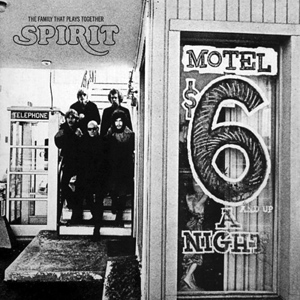
The Family That Plays Together is the second album by the rock band Spirit. The album was released on Ode Records in December 1968. It shows the group expanding on their early psychedelic rock style and moving toward what might be described as an early form of progressive rock. It was voted number 575 in Colin Larkin's All Time Top 1000 Albums 3rd Edition (2000).
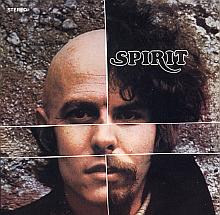
Spirit is the debut album by rock band Spirit, first released on January 22, 1968 by Ode Records. The experimental album was commercially successful, spending more than six months on the Billboard album charts, peaking at #31. It was voted number 658 in Colin Larkin's All Time Top 1000 Albums 3rd Edition (2000).
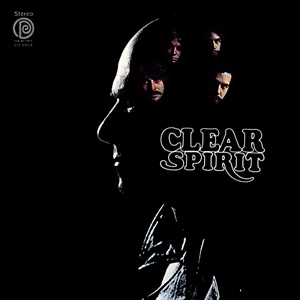
Clear is the third studio album by American rock band Spirit. It was released in September 1969 by Ode Records.
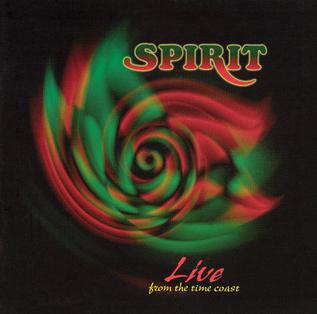
Live from the Time Coast is a double live CD by Spirit with 28 tracks. It is the fourth album to be released from the archives of the late Randy California. Recorded between 1989 and 1996, with a line-up that features founding members Randy California and drummer Ed Cassidy with Mike Nile on bass. This incarnation of Spirit is referred to by Spirit's hard-core followers as "The Tent Of Miracles Band".

Live at La Paloma is a live album by the hard rock band Spirit. Eleven of the 16 tracks were recorded on October 16, 1993 at the La Paloma Theater in Encinitas, California.
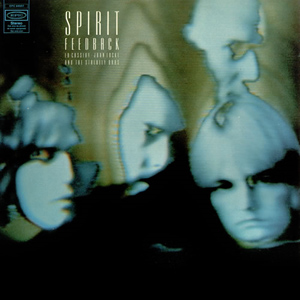
Feedback is the fifth album by the rock band Spirit. Released in 1972, it was the first Spirit album without original members Jay Ferguson and Mark Andes, and it was also the only Spirit album that did not feature Randy California performing on it, as California had left the group to pursue a solo career (Kapt. Kopter and the Twirly Birds).
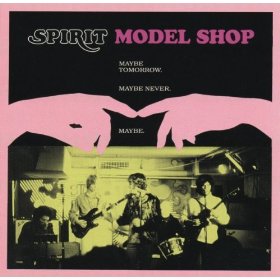
Model Shop is a 2005 album by the Los Angeles group, Spirit, which collects the material they recorded in 1968, for the soundtrack to Jacques Demy's film Model Shop. Chronologically, the album's material falls in between their second and third albums, The Family That Plays Together (1968) and Clear (1969) respectively.
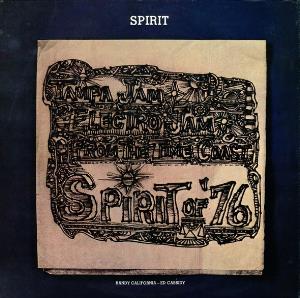
Spirit of '76, released in May 1975, was the first of four albums that Spirit would (initially) release for Mercury Records, and their sixth album overall. Though all four albums were greatly influenced by the time that Randy California spent living in Hawaii, this album bears that influence more than any of the others. Though it was largely ignored upon its first release, many fans consider it to be one of Spirit's best albums.

Son of Spirit was the second album that Spirit released through Mercury Records, and their seventh album overall.. It was released in October 1975. Unlike Spirit of '76, however, it did not make the national charts.

Farther Along was the third album that Spirit released through Mercury Records, and their eighth album overall. Though Jay Ferguson was missing from the lineup, it is generally considered to be their first "reunion" album.

Future Games, subtitled "A Magical Kahauna Dream", was the fourth album that Spirit released for Mercury Records, and their nineth album overall. However, it is practically a Randy California solo album in all but name, as he played most of the instruments and did most of the writing throughout the album. Coming off as a slightly warped science fiction version of Spirit of '76, it has been released several times on CD.

The Thirteenth Dream was the second "reunion" album from Spirit, and their eleventh album overall. It features re-recordings of seven of their best-loved tracks, along with three new songs. The most noteworthy things that can be said about the album are in regard to the excellent fidelity of the album, as it was originally recorded by an audiophile label and is an early digital recording, and that it was the first Spirit album to be released on CD, as it appeared in that format from Mercury Records in West Germany in 1984.

Kapt. Kopter and the (Fabulous) Twirly Birds is a 1972 studio album by Randy California.

The Adventures of Kaptain Kopter & Commander Cassidy in Potato Land was originally recorded by Randy California and Ed Cassidy during the 1972/73 hiatus period of Spirit. A concept album of sorts, interspersed with dialogue, its original scheduled release in May 1973 was cancelled by Epic Records. It was eventually released in an abridged form in 1981, with the first half as new recordings and the second comprising original recordings remixed with overdubs. A reworked and fuller version, still somewhat erroneously credited to Spirit, was released in 2006 and remains available as The Original Potato Land.

Tent of Miracles is the thirteenth studio album by the band Spirit released through Line Records in 1990. It features original Spirit members Randy California, Ed Cassidy and newcomer Mike Nile.
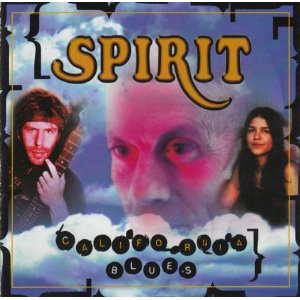
California Blues is the 14th and last studio album of the band Spirit, due to the death of guitarist/singer/songwriter Randy California one month after its release.



















